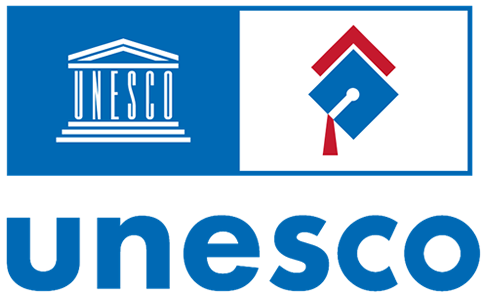The transformation of the National University of Colombia to address the requirements of the digital era
Abstract
Higher education is undergoing a digital transformation that involves the use of technology to improve teaching, learning, research and university management. The National University of Colombia (UNAL) has taken a proactive stance in this transformation, committing itself to implementing emerging technologies in the educational process. Innovation centers have been established and training programs have been implemented to ensure that teachers are prepared to effectively use new technologies in the classroom. The research carried out uses as methodology the collection and analysis of statistical data, as well as information from UNAL media, journals and national and international scientific works. The results obtained show an increase in the number of research groups, laboratories and the generation of cutting-edge knowledge. Through the implementation of innovative initiatives and the adoption of emerging technologies, the university has significantly improved the quality of teaching and learning, while expanding access to education to a more diverse audience. UNAL demonstrates a solid commitment to face the challenges of the digital era, adopting a student-centered perspective and fostering collaboration between different areas and departments. In addition, it is emphasized that UNAL is a socially committed university, with a long tradition of service to the community. It focuses on ensuring that the benefits of digital transformation are accessible to everyone, regardless of their socio-economic status.
References
Cardona Ossa, G. (2020, enero 5). Retos y desafíos de la educación superior en Colombia | El Nuevo Siglo. Recuperado 28 de junio de 2023, de bit.ly/3JZ8AMv
Cifras de Investigación. (2022, diciembre 9). Universidad Nacional De Colombia Viceinvestigacion.unal.edu.co/Cifras/. Recuperado 11 de junio de 2023, de bit.ly/441H0pO
Cifras de Laboratorios. (2022, julio 25). Universidad Nacional De Colombia viceinvestigacion.unal.edu.co/Cifras . Recuperado 8 de junio de 2023, de bit.ly/441H0pO
Cifras Generales - Estudiantes. (2022, diciembre 5). Universidad Nacional De Colombia | estadisticas.unal.edu.Co. Recuperado 28 de junio de 2023, de bit.ly/3NV0ua4
Cifras Generales Universidad Nacional de Colombia. (2022, diciembre 1). estadisticas.unal.edu.Co . Recuperado 9 de junio de 2023, de bit.ly/46FtI47
Cisco impulsa la transformación digital de Colombia con el ... (2021, enero 21). Cisco News The Americas Network. Recuperado 28 de junio de 2023, bit.ly/3PAX5OF
Desafíos del aprendizaje digital en Colombia - Fundación Fepropaz. (2022, abril 19). fepropaz.Com. Recuperado 28 de junio de 2023, de bit.ly/3PuAJOW
Docentes y estudiantes rurales transitan hacia una educación ... (2022, septiembre 29). agenciadenoticias.unal.edu.Co . Recuperado 28 de junio de 2023, de bit.ly/3NxoONt
Gestión de programas - Universidad Nacional de Colombia. (2022, marzo 6). Universidad Nacional De Colombia | direccionacademica.medellin.unal.edu.Co/. Recuperado 28 de junio de 2023, de bit.ly/46tji7f
La digitalización de las universidades. (2004). En Tecnolgía en Marcha (Vol. 7, Números 3, pp. 81-89). Recuperado 28 de junio de 2023, de bit.ly/46sCkur
La U.N., comprometida con la innovación digital 2030. (2018, agosto 22). agenciadenoticias.unal.edu.Co. Recuperado 28 de junio de 2023, de bit.ly/3poSch9
Laboratorio Innovación para la Paz - Extensión UNAL Bogotá. (2022, mayo 9). Universidad Nacional De Colombia | extension.bogota.unal.edu.Co. Recuperado 28 de junio de 2023, de bit.ly/3NTR1zM
Pardo-Cueva, M., Chamba-Rueda, L. M., Gómez, Á. H., & Jaramillo-Campoverde, B. G. (2020). Las TIC y rendimiento académico en la educación superior: Una relación potenciada por el uso del Padlet. Revista Ibérica de Sistemas e Tecnologias de Informação, (E28), 934-944.
Proyecto - Somos campus Bogotá - | Al Día UNAL - YouTube. (2023, mayo 19). Universidad Nacional De Colombia | direccionacademica.medellin.unal.edu.Co/. Recuperado 28 de junio de 2023, de bit.ly/3Xuzv8c
Resumen de indicadores de Educación Superior - Sistemas ... (2019, febrero 25). Ministerio De Educación Nacional. Recuperado 28 de junio de 2023, de bit.ly/3NRHAAH
Rovelli, L., & Babini, D. (2020). Tendencias recientes en las políticas científicas de ciencia abierta y acceso abierto en Iberoamérica. Tendencias recientes en las políticas científicas de ciencia abierta y acceso abierto en Iberoamérica, 1-184.
Santofimio Macias, Y. M. (2020). Los desafíos que enfrenta la educación virtual en Colombia.
Transformación digital en educación superior, herramienta para la ... (2022, junio 22). agenciadenoticias.unal.edu.Co. Recuperado 28 de junio de 2023, de bit.ly/3rbEdeR
Transformación Digital inovación con conciencia social. (2019, febrero 2). acofi.edu.Co. Recuperado 28 de junio de 2023, de bit.ly/434G1DX
UN operará el Vive Lab Bogotá. (2012, abril 13). Universidad Nacional De Colombia | agenciadenoticias.unal.edu.Co. Recuperado 28 de junio de 2023, de bit.ly/46tkLdL
UNAL inaugura primera Cátedra de Transformación Digital del país. (2021, diciembre 9). Universidad Nacional De Colombia | agenciadenoticias.unal.edu.Co. Recuperado 28 de junio de 2023, de bit.ly/46pts95
Universidad Nacional de Colombia plan estratégico ... (2022, diciembre 13). Universidad Nacional De Colombia | agenciadenoticias.unal.edu.Co. Recuperado 28 de junio de 2023, de bit.ly/3r68LPh
Uso de TIC para mejorar procesos incluyentes en las universidades. (2022, diciembre 28). Universidad Nacional De Colombia | agenciadenoticias.unal.edu.Co. Recuperado 28 de junio de 2023, de bit.ly/3plvc2D
Copyright (c) 2023 Kimberly Sarahi Flores Tuco, Mateo Rojas Samper

This work is licensed under a Creative Commons Attribution-NonCommercial 4.0 International License.
Copyright notice
Copyright allows the protection of original material, and curbs the use of others' work without permission. UNESCO IESALC adheres to Creative Commons licenses in the open access publication of ESS. Specifically, texts published in this journal are subject to a Creative Commons Attribution-NonCommercial 4.0 International (CC BY-NC 4.0) license: ESS is an open access journal, which means that all content is freely available to the user or their institution. Users may read, download, copy, distribute, print, search or link to the full text of the articles, or use them for any other lawful purpose, without asking prior permission from the publisher or the author, always making sure to cite the author. Commercial use is not permitted. ESS requires authors to accept the Copyright Notice as part of the submission process. Authors retain all rights.
The full license can be found at https://creativecommons.org/licenses/by-nc/4.0/
 Attribution - NonCommercial (CC BY-NC 4.0)
Attribution - NonCommercial (CC BY-NC 4.0)
This journal does not charge authors for the submission or processing of articles. The authors of the contributions will receive acknowledgment of receipt that the work has reached the Editorial Team of the Journal.




.png)
